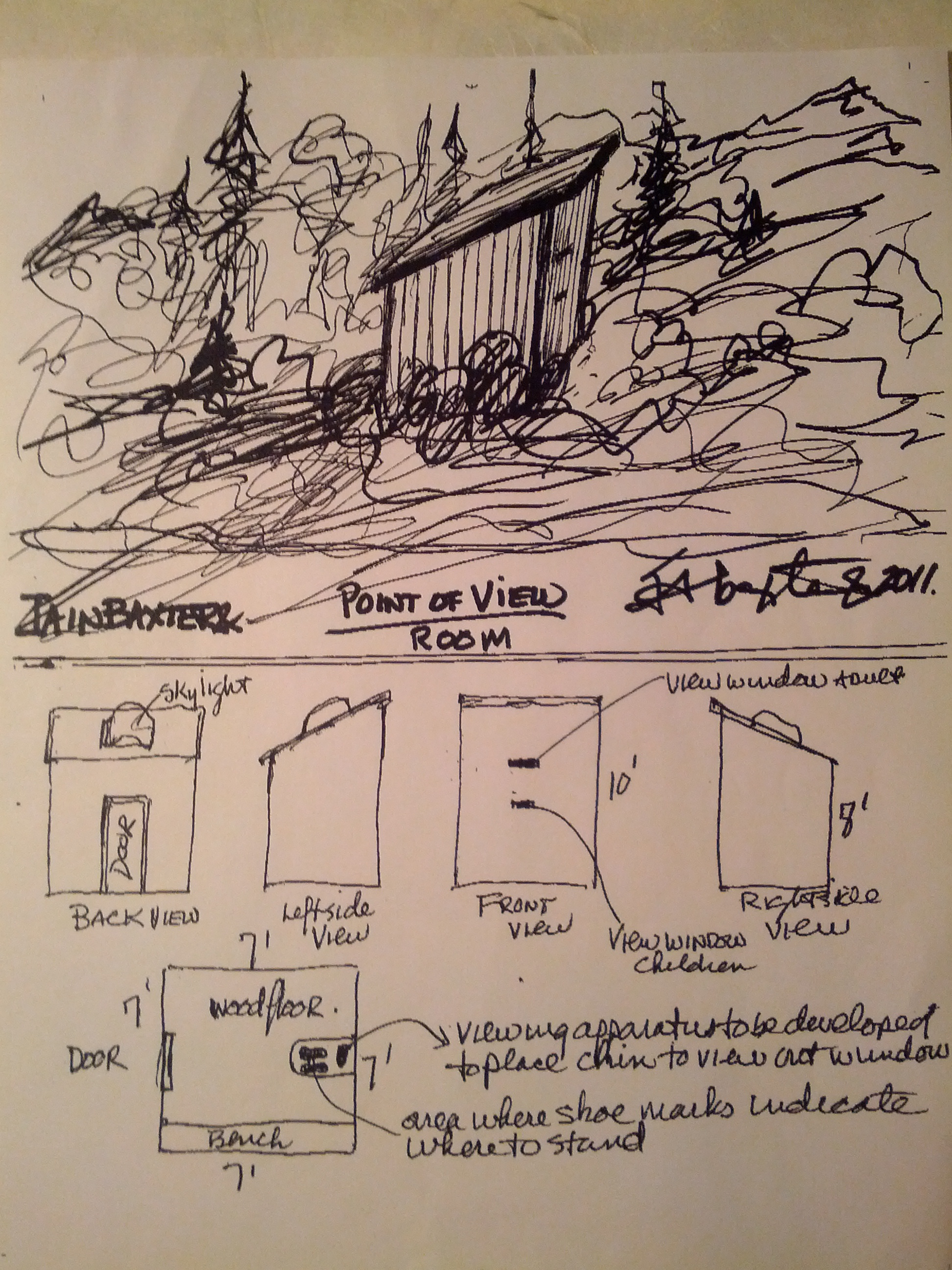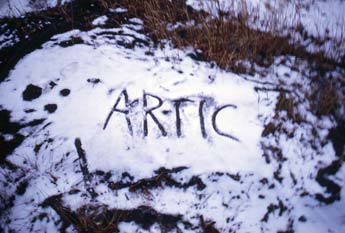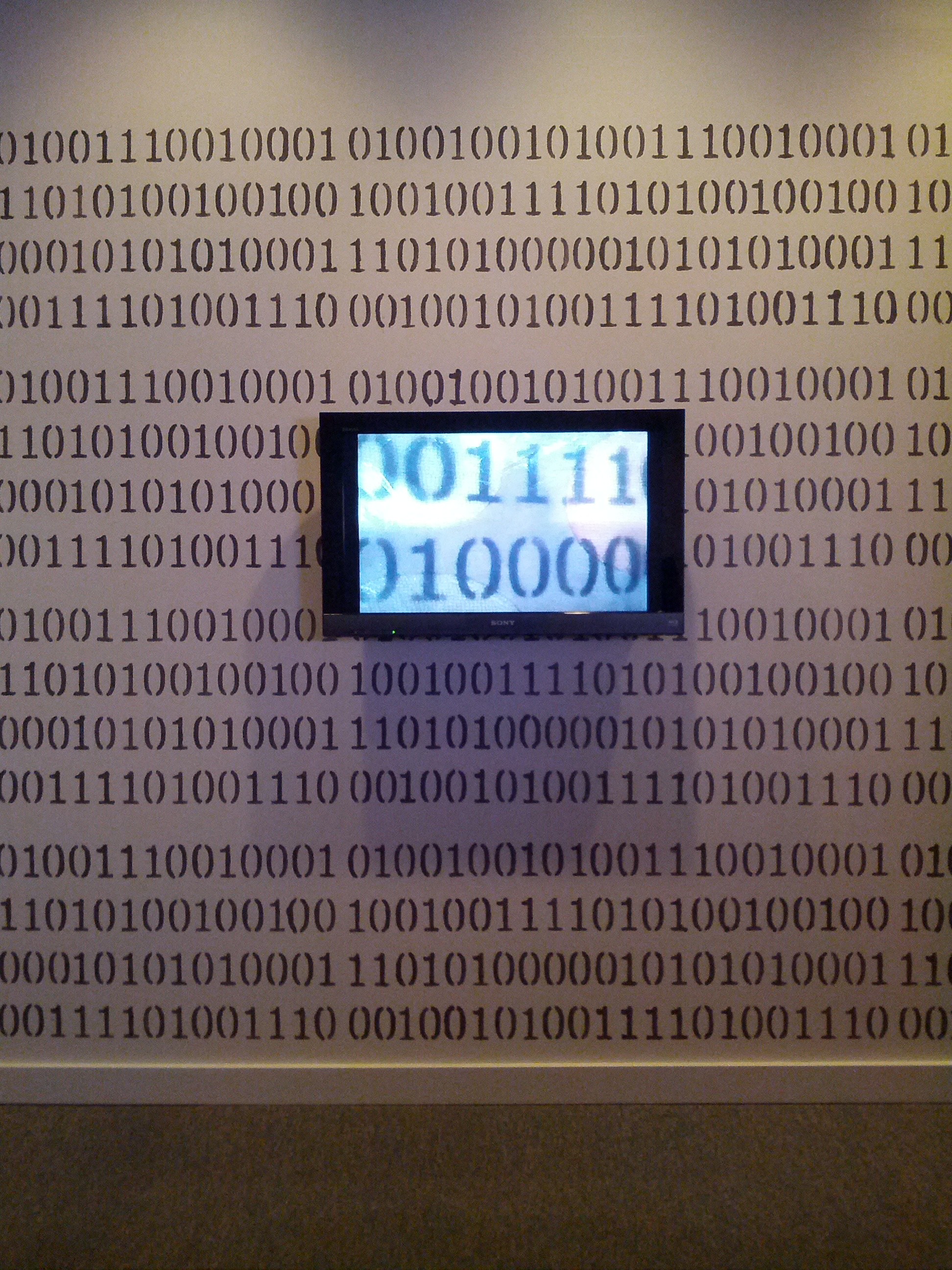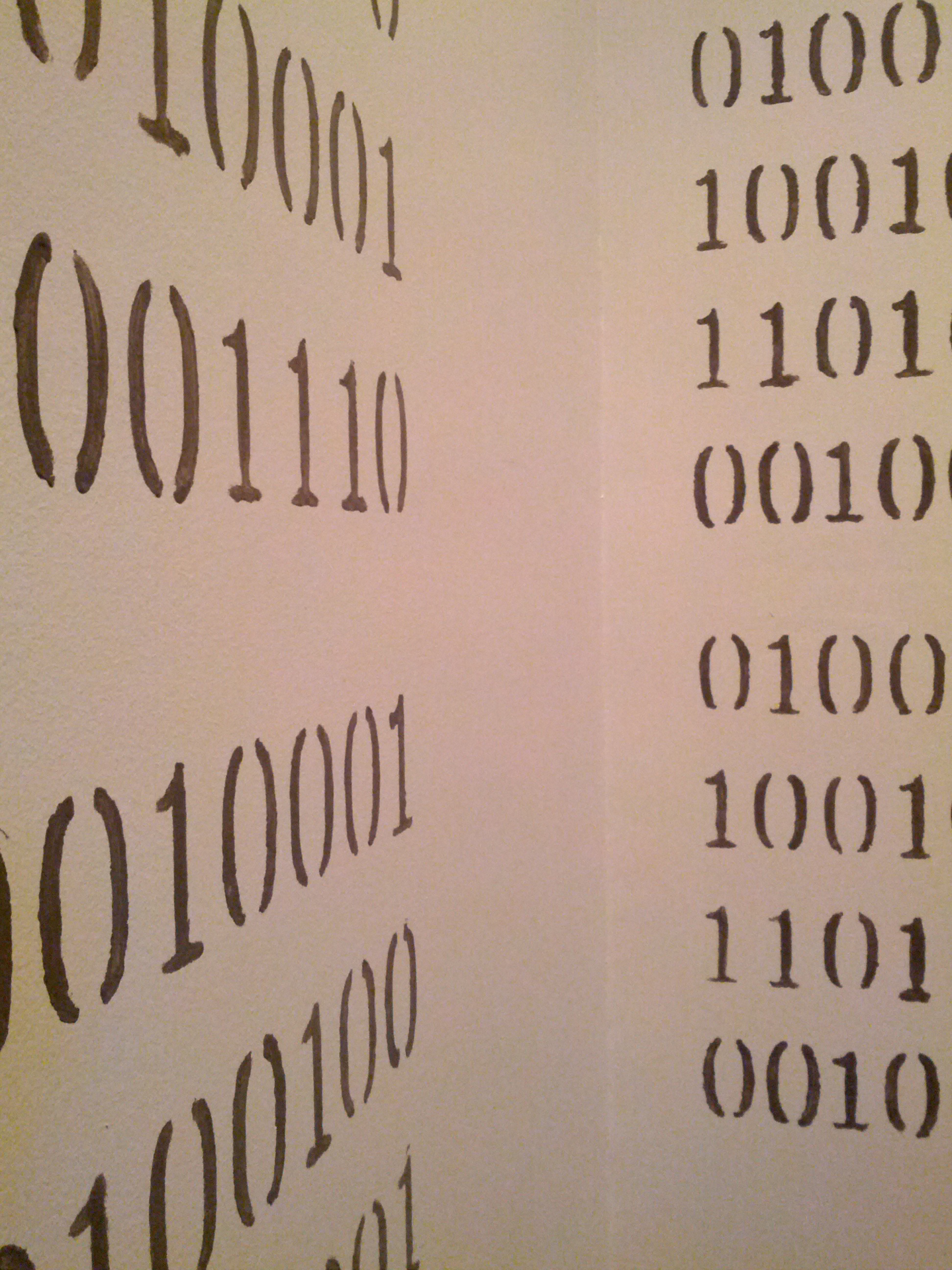Archives for December, 2012
IAIN BAXTER&: Non-Narrative Simultaneities
Posted: December 20, 2012Frameworks for an
Intervention
__________
IAIN BAXTER&: Non-Narrative
Simultaneities
by David Bellman
CAUSA
December 20, 2012
__________
“A narrative makes anything a ghost of itself, placing
it beyond the horizon of here and now.”
− José Ortega y Gasset (1914)
“All action revolves around death, and reality
is entirely founded on it.”
− Wyndham Lewis (1914)
“The great square has no outside, the great circle
has no inside.”
− Zen Buddhist maxim
CONJUNCTION [1]
“Listen.
This statement will leave,
is leaving, has left your
radio set at a forty-five degree
angle − at approximately
1,100 feet per second.
Did you see that?”
[Iain Baxter / N.E. Thing Company,
“Sensitivity Information Announcement.”
Presented as twelve thirty-second spots on
radio station CBX (AM) − Canadian
Broadcasting Corporation, Edmonton −
from January 15 to February 10, 1971.]
__________
“Whereas the modern artist has used his factive
or creative intelligence to manipulate matter and
experience into a pattern which could arrest the mind
in the presence of a particular aspect of existence,
the modern scientist has sought to merge the functions
of the primitive and civilized magicians. He has
developed formulas for the control of the material
and then applied these to the control of the human
mind and society with his patterned information.
That is the key to the nature of the new “mass media.”
− Marshall McLuhan (1969)
“Art is not there to provide perceptions in
direct ways. It produces deepened perception
of experience. More must happen than simply
logically understandable things. Art is not
there to be simply understood, or we would
have no art.”
– Joseph Beuys (1970)
CONJUNCTION [2]
IAIN BAXTER&, Information Mural / Information Room (Digital Conversion Code), 2012. [Installation view – (detail) with CAUSA documentary film, North Vancouver Museum.]
“The progression of a painter’s work, as it travels from
point to point, will be toward clarity; toward the
elimination of all obstacles between the idea and the
observer. As examples of such obstacles, I give (among
others) memory, history, or geometry, which are swamps
of generalization from which one might pull out parodies
of ideas (which are ghosts) but never an idea in itself.
To achieve this clarity in itself is, inevitably, to be
understood.”
– Mark Rothko (1949)
“Electric speeds create centers everywhere. Margins
cease to exist on this planet.”
– Marshall McLuhan (1969)
CONSTRUCTION [3]
IAIN BAXTER&, A World of Information, stencilled canvas (digital code overlaying mass-produced World Map), 2011. [Installation view, North Vancouver Museum, 2012.]
________________________________________________________________________
“The eye is the first circle, the horizon which it forms
is second; and throughout nature this primary figure is
repeated without end. It is the highest emblem in the
cipher of the world. … We are all our lifetime reading
the copious sense of this first of forms.”
– Ralph Waldo Emerson (1841)
“Nothing stands alone; each is only a part. A picture
must be a portrayal of relationships.”
– Emily Carr (1933)
IAIN BAXTER&, Mirror Image, Loutet Urban Farm, North Vancouver. [Detail of installation: fourteen mirrors (in two rows), 2012.] Photo: M. Cynog Evans.
CONJUNCTION [4]
IAIN BAXTER&, Mirror Image, Loutet Urban Farm, North Vancouver.
[Detail of installation: fourteen mirrors (in two rows), 2012.] Photo: M. Cynog Evans.
________________________________________________________________________
“The question of urban society is to be taken seriously
because we should not take it for granted that we shall
live in a true urban environment in the sense we take it
now. The domestic environment appears to be more
readily the basic unit or individual cell, for it acts as
the direct connection between the individual and urban
environment. It is into this more or less closed individual
environment that the individual is able to introduce
‘News of the World,’ i.e., messages from the immediate
socio-cultural world (and from remote historical worlds)
which cross (independently) time and space, influencing
his ways of thinking, judging and decisions, only to the
extent that he wants to pay attention to them.”
– Abraham Moles (1971)
“In the end, we each live our own landscape inside the
Infoscape – Landscape as Lifescape.”
– IAIN BAXTER& (1990)
CONJUNCTION [5]
IAIN BAXTER&, Sketch for Point of View Room, 2011.
__________
20.12.12.
__________
IAIN BAXTER&: In The Medium Of Motion
Posted: December 11, 2012FRAMEWORKS FOR AN INTERVENTION
by David Bellman
CAUSA
December 11, 2012
__________
IAIN BAXTER&:
In The Medium Of Motion
“Deadness is the first condition of art.”
– Wyndham Lewis (1914)
PROSPECT [1]
ARTIC – WORD MISPELLED IN SNOW 3 MILES NORTH OF INUVIK
Iain Baxter: information, Fraser University to Nova Scotia College of Art and Design, October 3, 1969.
__________
“Tradition, in a word, is the sense of the total past as now.”
– Marshall McLuhan (1964)
PROSPECT [2]
ARTIC – WORD MISPELLED IN SNOW 3 MILES NORTH OF INUVIK
N.E. Thing Co. project, realized November 1969. (Photo: Iain Baxter.)
__________
“The starting point of any process of thinking is something going on, something which just as it stands is incomplete or unfulfilled. Its point, its meaning lies literally in what it is going to be, in how it is going to turn out.”
– John Dewey (1916)
PROSPECT [3]
IAIN BAXTER&, Information Mural (detail) with “scavenged/altered” painting, Idyllic Landscape (detail). Installation at North Vancouver Museum. (Photo: M. Cynog Evans, CAUSA Archives, 2012.)
__________
“People can express themselves only through imprint forms using certain materials. This is, of course, also the case of language. But if this model – it need not be large: today everything is much too large – if the imprint quality is there, it is easier to see where it came from and whether the constellation is already, shall we say, optimal, and this can be discussed unendingly. And only this is culture; everything else is not.”
– Joseph Beuys (1979)
PROSPECT [4]
IAIN BAXTER&, Information Mural (detail, with video monitor). Installation at North Vancouver Museum. (Photo: M. Cynog Evans, CAUSA Archives, 2012.)
__________
“The agitator seizes the word. The artist is seized by it.”
– Karl Kraus (1909)
PROSPECT [5]
IAIN BAXTER&, Information Mural (detail). Installation at North Vancouver Museum. (Photo: M. Cynog Evans, CAUSA Archives, 2012.)
__________
“For the time being,
the mind reaches but the word
does not.
For the time being, the
word reaches but the mind
does not.
For the time being, the
mind and word both reach.
For the time being,
neither mind nor word reach.”
– Dōgen (1240)
PROSPECT [6]
IAIN BAXTER&, BLUR, twigs [installation variable], 2012. (Photo: M. Cynog Evans, CAUSA Archives.)
__________
“Even if the [artist’s] material lasts for only a few seconds it will give sensation the power to exist and be preserved in itself in the eternity that coexists with this small duration. So long as the material lasts, the sensation enjoys an eternity in those very moments.”
– Gilles Deleuze & Félix Guattari (1991)
PROJECT [7]
IAIN BAXTER&, Oral Work, 2012.
This work was first presented in an exhibition context at the Museum of Contemporary Art, Chicago – as part of the project “Art by Telephone” (1969). It can be experienced, again, by enquiring at Artspeak, Vancouver. [Telephone: (604) 688-0051.]
Following instructions from the artist, this self-contained, word-based work has never been recorded beyond the archival record of its own continuative presence. It remains the artist’s intention that an exclusively oral tradition should sustain an institutionally intervenient presence, in perpetuity.
Access to IAIN BAXTER&’s Oral Work – in a particular phase of its development – is available at Artspeak until 4:45 pm [Pacific Standard Time], December 15, 2012.
__________
11.12.12.
IAIN BAXTER &: MAGNITUDE + DIRECTION
Posted: November 20, 2012IAIN BAXTER &:
MAGNITUDE + DIRECTION
November 20, 2012
__________
“VSI [Visual Sensitivity Information]” formula, sent (initially) via telex by Iain Baxter – N. E. Thing Company Projects Department – from Simon Fraser University (Library) to Nova Scotia College of Art and Design, October 3, 1969.
__________
“The new world will not need little pictures. If it needs a mirror, it has the photograph and the cinema. In the new world the creator called ‘artist’ will create the world itself, and not describe it.”
– El Lissitzky (1922)
“Modern Art always projects itself into a twilight zone where no values are fixed. It is always born in anxiety, at least since Cézanne.”
– Leo Steinberg (1962)
__________
• BELOW •
[A.Y. Jackson, Radium Mine, 1938, oil on canvas, 71.1 x 91.4 cm. Photo: heffel.com]
On May 16, 1930, a vein containing silver and pitchblende [a primary source of uranium] was discovered by French-Canadian prospector Gilbert Labine (a friend of the artist A. Y. Jackson). His discovery led to the development of his company, Eldorado Mine, and its related town-site, Port Radium (the subject of this painting). Commencing operations in 1933, this mine was the only source of radium outside the Belgian Congo.
“A tiny, ugly collection of frame bunk-houses and mills squats forlornly on the shore of remote Great Bear Lake, in Canada’s Northwest Territories. It is 1,400 miles north of the nearest railhead (at Waterways, Alberta), and 26 miles south of the Arctic Circle, in a part of the continent bleak with long, cold winter nights. The village has no official name, but it is sometimes called Radium City. Last week it suddenly found itself part of an all but incredible world drama, for under its fir-bearded slopes lies the stuff of which atomic bombs are made.”
– TIME (August 20, 1945)
[On August 6, 1945, an American B-29 bomber, the Enola Gay, had dropped an atomic bomb on the city of Hiroshima, Japan.]
__________
“There is gaiety sometimes in Jackson, but it is rationed. His vision is as austere as his subject-matter, which is precisely the hard puritanic land in which he always has lived: with no frills, with all its dismal solitary grandeur and bleak beauty, its bad side deliberately selected rather than its chilly relentings.”
– Wyndham Lewis (1946)
“In the organization of total war it is logical that artists should be a part of it, whether to provide inspiration, information or comment ….”
– A. Y. Jackson (1946)
__________
• ABOVE •
[Emily Carr, Above the Trees, circa 1939, oil on paper, 91.2 x 61.0 cm, Collection of the Vancouver Art Gallery, Emily Carr Trust. Photo: Trevor Mills, Vancouver Art Gallery]
“We want exhilaration. We want incentive to push further on, we want to make thoughts and longings that will set us wondering, that will make us desirous to explore higher and deeper and wider, to see more, to understand more.”
– Emily Carr (1936)
“When she left the native theme behind around 1930, she was already on a path that was taking her into nature in a kind of identification, not as an onlooker but a participant in its ongoing energy. … In the late paintings the energy finally comes to belong not to a particular place but to her mind, an imaginative construct she applied to all nature.”
– Doris Shadbolt (2002)
__________
“Before we ask WHAT CAN WE DO? we have to first consider the question HOW MUST WE THINK?”
– Joseph Beuys (1982)
__________
• TOWARDS •
IAIN BAXTER&, ARCTIC-VSI, 2012
[Iain Baxter (N. E. Thing Company Projects Department) first presented this “Visual Sensitivity Information” via telex transmission – from Simon Fraser University (Library) to Nova Scotia College of Art and Design – on October 3, 1969.]
“We perceive in the social domain as well as in the physical that what is correct at one level of importance becomes incorrect at another. In probing one level of analysis, it becomes apparent that the global facts observed at a different level dissolve and do not correspond to reality.”
– Jacques Ellul (1962)
__________
20.11.12.
__________
![IAIN BAXTER&, Information Mural / Information Room (Digital Conversion Code), 2012. [Installation view -- (detail) with CAUSA documentary film, North Vancouver Museum.]](images/conjunction-2.jpg)
![IAIN BAXTER&, A World of Information, stencilled canvas (digital code overlaying mass-produced World Map), 2011. [Installation view, North Vancouver Museum, 2012.]](images/conjunction-3.jpg)
![IAIN BAXTER&, Mirror Image, Loutet Urban Farm, North Vancouver. [Detail of installation: fourteen mirrors (in two rows), 2012.] Photo: M. Cynog Evans.](images/conjunction-4.jpg)
![IAIN BAXTER&, Mirror Image, Loutet Urban Farm, North Vancouver. [Detail of installation: fourteen mirrors (in two rows), 2012.] Photo: M. Cynog Evans.](images/conjunction-4-b.jpg)
![IAIN BAXTER&, Mirror Image, Loutet Urban Farm, North Vancouver. [Detail of installation: fourteen mirrors (in two rows), 2012.] Photo: M. Cynog Evans.](images/conjuction-4-c.jpg)





![IAIN BAXTER&, BLUR, twigs [installation variable], 2012. (Photo: M. Cynog Evans, CAUSA Archives.)](images/causa-3.jpg)
![IAIN BAXTER&, BLUR, twigs [installation variable], 2012. (Photo: M. Cynog Evans, CAUSA Archives.)](images/causa-4.jpg)
![IAIN BAXTER&, BLUR, twigs [installation variable], 2012. (Photo: M. Cynog Evans, CAUSA Archives.)](images/causa-6.jpg)
![VSI [Visual Sensitivity Information] formula, sent (initially) via telex by Iain Baxter -- N. E. Thing Company Projects Department -- from Simon Fraser University (Library) to Nova Scotia College of Art and Design, October 3, 1969.](images/vsi-2.jpg)
![[A.Y. Jackson, Radium Mine, 1938, oil on canvas, 71.1 x 91.4 cm. Photo: heffel.com]](images/lot_157_jackson.jpg)
![[Emily Carr, Above the Trees, circa 1939, oil on paper, 91.2 x 61.0 cm, Collection of the Vancouver Art Gallery, Emily Carr Trust. Photo: Trevor Mills, Vancouver Art Gallery]](images/vag-42-3-83.jpg)
![IAIN BAXTER&, ARCTIC-VSI, 2012 -- [Iain Baxter (N. E. Thing Company Projects Department) first presented this Visual Sensitivity Information via telex transmission -- from Simon Fraser University (Library) to Nova Scotia College of Art and Design -- on October 3, 1969.]](images/north-2.jpg)